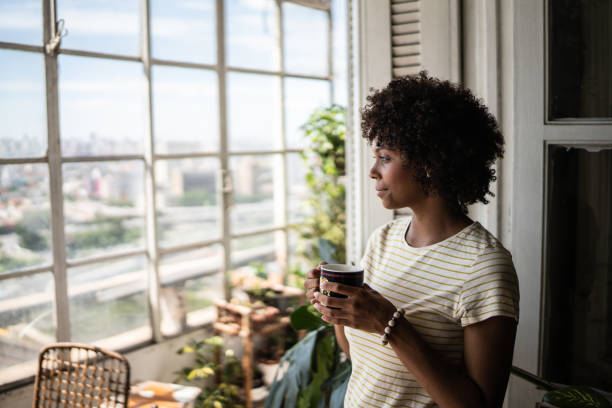(ThySistas.com) Every few months, there’s a new health buzzword. It features in a thousand and one articles, the area of health that we had never considered and is actually the key to feeling amazing. There’s usually a wealth of celebrities ready to jump on the bandwagon and do their cupping, grab their B12 shots or whatever the new health-focus-of-the-moment is.
Most of us tend to turn our noses up at it. We know better than that, right? We know that there’s no way we’re going to fall for the hype. We passed on paleo, jumped off the juicing bandwagon and rubbished reflexology. We’re not that stupid.
I didn’t think I was that stupid.
Then, all of a sudden, everyone started talking about my issue. That got my attention.
Everyone was suddenly talking about something that genuinely had blighted my life and led to far more doctor’s visits that I care to count. Something I did consider a problem and did think I was out of ideas for: digestive issues.
It’s not the most attractive thing to talk about really, is it? It certainly doesn’t feel feminine. The closest we women get to really addressing these issues is women smiling in adverts and saying their new yogurt is amazing and has fixed all their problems. Not that any discusses what those problems actually were, just that they’re gone now, and they can go back to laughing at salad or whatever advertisers think women do.
So my problems? Pain and bloating. We’re talking bloating severe enough to knock me up a dress size on the bad days. Pain so severe I would wince, apply a hot water bottle and furiously try to figure out what food had done it to me this time. Only I couldn’t find a common thread; there was no culprit just waiting for me to apprehend it.
Visiting A Doctor
I did the sensible thing and sought medical attention. If any of this is sounding familiar, that’s what you should do as well. I didn’t expect much of the visit as I had had these issues for years, but I did it anyway.
I had an endoscopy, which didn’t find anything. I tried prescribed antacids, which did ease some of the discomfort, until I learned of the damage these kind of medications can do. (For the link-phobic, it’s pretty simple: in the long-term, PPI medication – which forms the basis of antacids, will make the problem worse in the long run.)
There was nothing specifically wrong, and there was no particular treatment prescribed. My GI issues were, they theorized, linked to anxiety issues and that infamous “trash can” diagnosis: Irritable Bowel Syndrome.
Then Everyone Started Talking About Leaky Gut Syndrome
So it spread, from TV show to celebrity, everyone was focusing on a Leaky Gut. If you’re as baffled by this concept as I was initially, then at http://www.webmd.com/digestive-disorders/features/leaky-gut-syndrome#1 Web MD describes it as:
“A possible cause of leaky gut is increased intestinal permeability or intestinal hyperpermeability.
That could happen when tight junctions in the gut, which control what passes through the lining of the small intestine, don’t work properly. That could let substances leak into the bloodstream.”
As a consequence, toxins and other unwanted particles build up in the blood stream causing a whole range of health issues. A lot of the main symptoms of Leaky Gut Syndrome that I checked out at www.thealternativedaily.com/how-to-fix-a-leaky-gut/ sounded very similar to what I had experienced. It even offered an explanation for things I had thought to be more character traits than anything, such as the brain fog I perpetually live alongside.
So How Viable Is It?
The truth is, there’s very little medical evidence for Leaky Gut Syndrome. Some medics and alternative health practitioners swear it’s a problem and something that people need to fix. Others say it’s nonsense and doesn’t mean a thing, despite the fact that “increased intestinal permeability” is something medical science agrees can happen in cases such as Crohn’s Disease. Most say it’s an area that requires more research, which is always the best answer. Science should always be learning, shouldn’t it?
What I Did Next
After a lot of reading about the topic, I still wasn’t ready to commit. I still wasn’t convinced that it was anything more than the fad-of-the-moment that everyone should still forget about.
I decided to try and research the results of treatment for Leaky Gut Syndrome. I expected to see a lot of expensive pharmaceuticals and miracle products. I expected to be seeing the word “detox” a lot, and that the “detox” would be expensive. Usually, if everyone is suddenly being encouraged to talk about something, then some of those people are making money off of it. So the world works.
To my surprise, I didn’t find any of those things. In fact, the primary method of treatment seemed to be withdrawing things from my diet – not adding to it. It was around this point I really started to pay attention and considered making the changes that were being suggested.
So I Gave It A Go
For a 10 day period, I eliminated grains and dairy products from my diet.
I’m not going to pretend this was easy – in fact, it made me resent the whole concept. I missed cheese the most. But I’d promised myself 10 days was nothing, in the grand context of my life. I could get through it, evaluate and then see if it had been worth it.
Was It?
Yes and no.
I definitely felt better; the major improvement I saw was in terms of bloating. I no longer half-expected people to ask me if I was pregnant when I wore something form-fitting. I did see an improvement in my energy levels, but I didn’t notice much difference in cramping.
The major downside was in terms of restriction. I couldn’t go out for dinner with my husband as no menu catered to someone on such a limited diet, unless I wanted to drink water alone.
I’ve since settled into a regime of one week out of four. One week per month I eliminate the problematic foods favoring more natural and less processed options. I find this is a good system “reset” and I can surf along nicely for the other three weeks.
In conclusion: it’s worth trying, if you can find no other causes for your digestive issues. At the very least, you’ll get to practice some new free-from recipes – and at best, you’ll improve your quality of life.
Staff Writer; Jamilah Parker










Leave a Reply